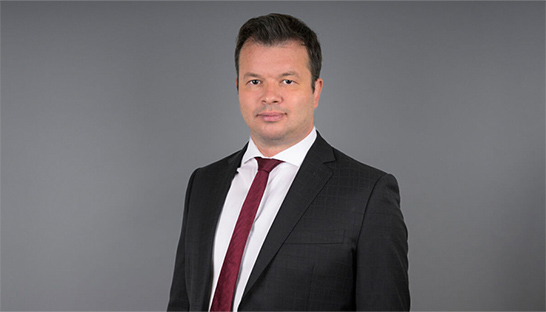Dubai Embraces Real Estate Tokenization, Prompting New Taxation Considerations




The bustling metropolis of Dubai is pioneering a transformative initiative that is fundamentally reshaping the real estate investment landscape. This groundbreaking development centers around the tokenization of property assets, offering unprecedented opportunities for both sellers and investors to participate in Dubai's dynamic real estate market through innovative blockchain technology.
At the forefront of this revolution is Prypco Mint, a cutting-edge platform launched under the strategic guidance of the Dubai Land Department. This government-backed initiative represents a bold leap into the future of property investment, harnessing the power of blockchain technology to enable fractional real estate ownership. The platform's accessibility is particularly noteworthy, allowing investors to enter Dubai's prestigious property market with investments starting at just 2,000 dirhams, approximately $540, marking a significant shift towards inclusivity in real estate investment.
Tokenization represents a revolutionary approach that utilizes blockchain technology to facilitate the purchase and management of ownership rights by transforming physical assets into digital tokens. This innovative process extends beyond traditional financial instruments to encompass tangible resources including real estate properties, mining operations, and even sports franchises. The technological foundation of this transformation is built upon the secure and transparent nature of blockchain networks, ensuring reliable ownership records and seamless transactions.
Industry experts from leading consultancies including McKinsey & Company, Roland Berger, and Agile Dynamics have projected extraordinary growth potential for the tokenized asset sector. Their comprehensive analyses suggest that this emerging market could rapidly expand to reach multi-trillion-dollar valuations, underscoring the tremendous economic impact and investment opportunities that tokenization presents across various asset classes.
According to detailed estimations from the Dubai Land Department, tokenized real estate is positioned to capture approximately 7% of Dubai's total property transactions by 2033, representing an impressive $16 billion market segment. This projection reflects the anticipated widespread adoption of blockchain-based property investment solutions and the growing investor confidence in digital asset ownership models.
The current implementation phase of Prypco Mint focuses on the local market, exclusively accepting dirham transactions and restricting access to UAE ID holders. However, the platform's ambitious roadmap includes comprehensive global expansion plans, promising exciting opportunities for international investors to participate in Dubai's tokenized real estate ecosystem in the near future.
The sophisticated technological framework supporting Prypco Mint is orchestrated by Ctrl Alt, which leverages the robust XRP blockchain to create seamless integration between digital property records and existing government systems. This advanced infrastructure ensures perfect synchronization between traditional real estate ledgers and blockchain-based ownership tokens, maintaining the integrity and authenticity of property title deeds while enabling efficient digital transactions.
The platform's design prioritizes user accessibility while maintaining the highest security standards. By combining government oversight with cutting-edge blockchain technology, Prypco Mint establishes a trusted environment where investors can confidently engage in fractional property ownership without compromising on legal compliance or transaction security.
The emergence of tokenized real estate introduces complex considerations in taxation and regulatory compliance, particularly regarding Value Added Tax implications. Industry expert Vlad Skibunov from Dhruva Consultants emphasizes the critical importance of understanding how these digital assets will be classified under UAE law, as this classification will fundamentally determine the applicable tax treatment for various transactions.
The key distinction lies in whether tokenized properties are categorized as traditional real estate interests or classified as virtual assets. This classification significantly impacts VAT applications, with traditional property transactions typically subject to a 5% VAT rate for commercial assets while residential units remain exempt. However, if tokens are classified as virtual assets, they might benefit from exemptions or zero-rating similar to financial services, creating more favorable tax conditions for investors.
Additional complexity arises in the treatment of rental income distributions and platform service fees, which require careful evaluation to ensure compliance with evolving regulatory standards. The taxation framework must adapt thoughtfully to encourage market growth while maintaining appropriate oversight and revenue generation for government authorities.
Dubai's journey into real estate tokenization represents a monumental shift that blends advanced technology with traditional property investment, creating an exciting yet complex frontier in the global investment landscape. As Prypco Mint prepares for international expansion, taxation frameworks across different jurisdictions will need to evolve rapidly to support this new economic paradigm.
The success of Dubai's tokenization initiative could serve as a blueprint for other major cities and countries looking to modernize their real estate markets. The combination of government support, advanced technology, and investor accessibility creates a compelling model that addresses many traditional barriers to property investment while opening new avenues for wealth creation and portfolio diversification.
The platform's global ambitions suggest that investors worldwide will soon have unprecedented access to Dubai's premium real estate market through fractional ownership opportunities. This democratization of property investment could fundamentally alter how individuals and institutions approach real estate as an asset class, making prestigious properties accessible to a broader range of investors regardless of their capital constraints or geographic location.

Comments